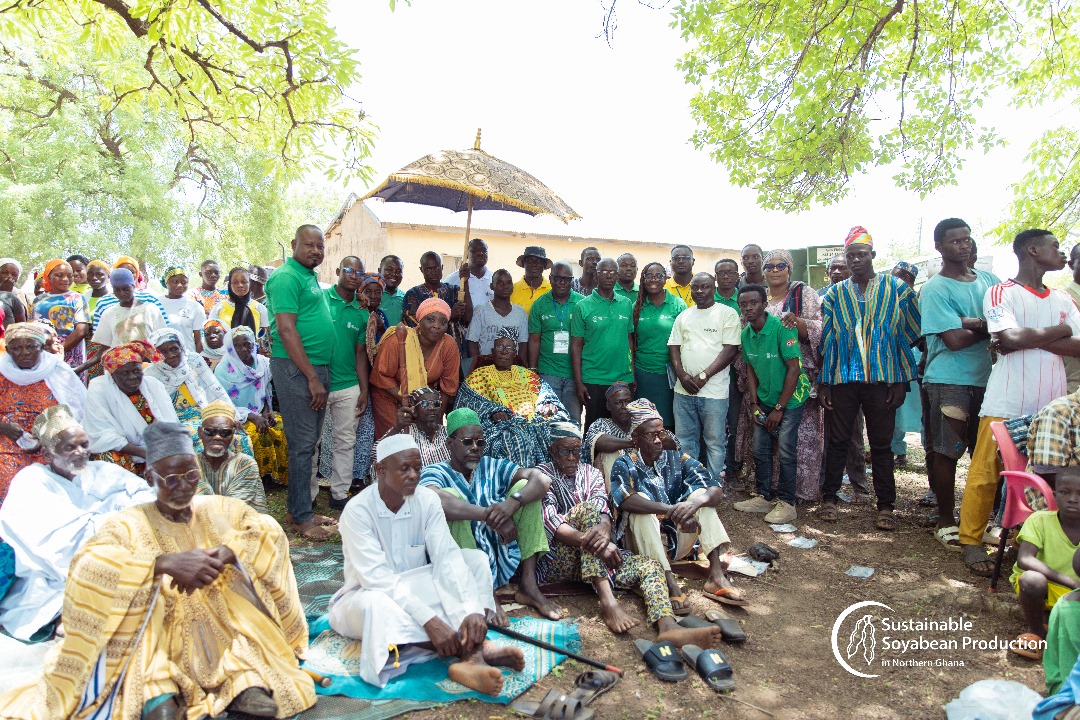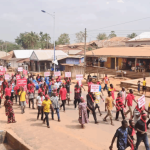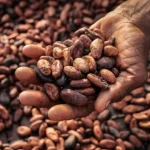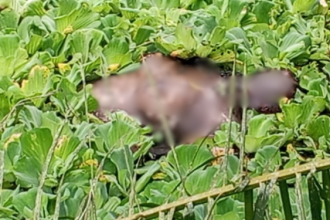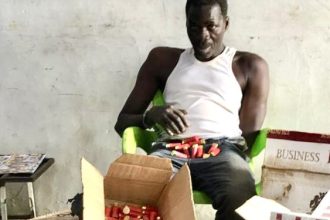Women farmers at Kpanshegu in the North East Gonja District of the Savannah Region have lauded the Sustainable Soyabean Production in Northern Ghana (SSPiNG) project and pledged to adopt best production practices.
The women who farm soybeans in the community learned technologies in soybean planting, including good agronomic practices to improve their yields.
This was after they were taken through a demonstration of some soybean yield-enhancing technologies and techniques, including inoculant and New YaraLegume fertilizer applications, which showed high yields of soybeans compared to the same piece of land where the farmers employed their traditional methods.
The SSPiNG project is funded with a grant from the Norwegian Agency for International Cooperation (Norad) to Yara Ghana Limited, and is being implemented in collaboration with the Institute of Tropical Agriculture (IITA), in association with Wageningen University (Netherlands) and Felleskjøpet Rogaland Agder (FKRA – Norway), and in partnership with the Ministry of Food and Agriculture (Ghana).
It is aimed at building the capacities of farmers to enable them to adopt new strategies by ensuring proper site selection, adequate land preparation, the use of certified seeds and climate-smart varieties, and employing good sowing techniques among other good agronomic practices.
At a community durbar in Kpanshegu to engage with soybean farmers on the new techniques acquired during the field demonstration and field day organized using the demonstration fields, Madam Adamu Abdulai, a farmer, said, “This initiative is an eye-opener, and we welcome it wholeheartedly. In fact, it has given us a clue on how to do proper planting.”
She added, “While we hope that this project continues to educate other farmers, we want to assure all stakeholders that we are adopting these new techniques henceforth with a keen interest in following all the instructions given to us by the field officers.”
Madam Hawawu Iddrisu, another farmer, attested that there was a vast difference between the yields recorded.
She noted, “The difference is clear, though we used the same seeds and fertilizer while we were sowing at wider spacing, and putting five to six soyabean seeds in one hole as our practice, they were putting two seeds in one hole with little space from one hole to another, and this has shown why the same small piece of land that was producing one bag of soyabean grains would now produce two or more.”
Madam Hawa Musah, Northern Regional Director of Agriculture, who represented the Savannah Regional Director of Agriculture during the event, said soyabean was a cash crop that could strengthen farmers’ financial capacity.
However, she indicated, the failure of farmers to embrace innovative technologies and improved agronomic practices was depriving them of high yields.
She said the government was ready to assist farmers who had registered and measured their farms with inputs, seeds, and fertilizer to improve yields, and advised the farmers to adopt innovative technologies, ensure early planting, depending on the regularization of rainfall, use recommended inputs, and ensure timely application of inputs and appropriate methods.
Professor Samuel Adjei-Nsiah, the SSPiNG Project Coordinator, said the “SSPiNG project, in the last farming season, assisted Boresa Investment Limited with grants to procure a multipurpose thresher at a subsidized cost to thresh their soyabean to obtain quality grains that attracted higher prices.”
He said, “We realize that most farmers thresh their soybeans using manpower, which puts a lot of stress on them, resulting in poor quality grains. Additionally, farmers have problems with planting soybeans because they use their own labor, leading to low yields. Remember, soybeans are about numbers—the more plants you have in your field, the higher the yield.
Professor Adjei-Nsiah said women farmer groups, aggregators, and others since 2022 had been supported with 48 planters and 25 multipurpose threshers to help them in their production, and encouraged farmers to expand to increase yields, income, and food security.
Madam Rafiatu Iddisa, Chief Executive Officer of Boresa Investment Limited commended the SSPiNG project for the support, saying the new techniques learned would go a long way to help improve their yields and appealed for more equipment for women to produce more soyabean grains.
Mr Kudjoe Agbenyega, Chief Finance Officer, Yara Ghana Limited gave assurance of the company’s support to smallholder farmers throughout the project and announced his outfit’s donation of 300 bags of Yara Actyva fertilizer to farmers in the community.
The Chief of Kpanshe, Kpanshewura F. A. Adam, also appealed to the SSPiNG project to extend their services to other communities, saying, “We have the land and the women, and if you extend your services to other places, I will be very grateful because women are the ones who keep the home, and if they are empowered, the entire community will benefit.”


